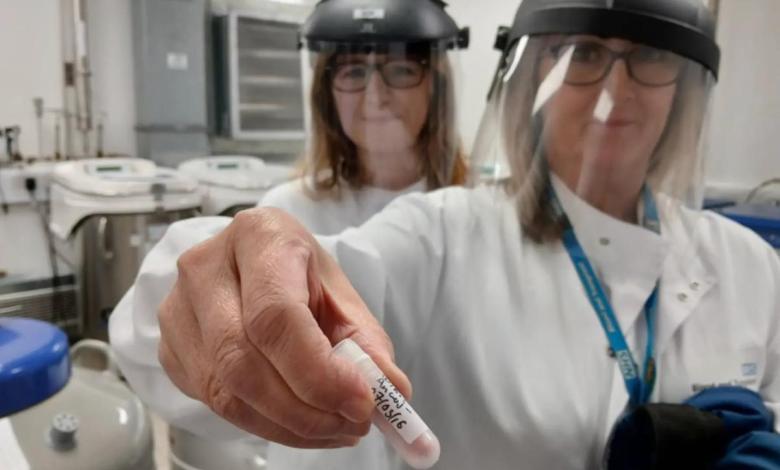the new MAL blood group promises to save lives

ORn group of UK scientists discovered a new blood groupcalled EVIL, that solves a 50-year-old mystery antique.
The research team identified the genetic background of the previously known but mysterious AnWj blood group antigen, which will allow the identification and treatment of patients with rare cases.
THE ANWJ ANTIGEN
“The rare hereditary form of the AnWj-negative phenotype has only been found in a handful of individuals, although due to this discovery it will now be easier to find others in the future,” indicate the experts, who were led by Blood and Transplant scientists. of the NHS based in Bristol, England, at the NHSBT International Blood Group Reference Laboratory (IBGRL), and were supported by colleagues at the University of Bristol.
The two most well-known blood group systems are ABO and Rh, but blood is more complex and matching the other groups can save lives.
If people who are AnWj-negative receive AnWj-positive blood, they could have a transfusion reaction. This research allows the development of new genotyping tests to detect individuals with this blood group. The research seeks to reduce the risk of complications associated with transfusions.
The AnWj antigen (an antigen is a surface marker) was discovered in 1972, but its genetic origin was unknown until now. The new research, which will be published by Blood, The journal of the American Society of Hematology, and now available online in preprint, establishes a new blood group system (MAL), the 47th to be discovered, as the home of the AnWj antigen.
ANWJ TAKES PROTEIN TO THE BAD BLOOD GROUP
The research team established that AnWj carries the Mal protein. More than 99.9 percent of people are positive for AnWj, and such individuals were shown to express full-length Mal protein in their red blood cells, which was not present in the cells. of negative individuals in AnWj. The team identified homozygous deletions in the MAL gene associated with the inherited AnWj-negative phenotype.
The most common reason for being AnWj-negative is due to suffering from a hematological disorder or some types of cancer that suppress the expression of the antigen.
Only a very small number of people are AnWj-negative and this is due to a genetic cause. There were five AnWj genetically negative individuals in the study, including an Israeli Arab family. The blood tested included a sample given by a lady in 2015 who was the first AnWj-negative person to be discovered in the 1970s.
RARE CASES IN THE MAL BLOOD GROUP
The research team used whole exome sequencing, the genetic sequencing of all the DNA that codes for proteins, to show that these rare inherited cases were caused by deletions of homozygous DNA sequences in the MAL gene, which codes for the Mal protein.
“Proof that Mal is responsible for the binding of AnWj antibodies isolated from these patients with rare cases was provided by experiments showing the appearance of specific reactivity with cells in which the researchers introduced the normal MAL gene, but not the “mutant.”
Louise Tilley, a research scientist who was part of the study, said: “The genetic background of AnWj has remained a mystery for over 50 years, and one that I have personally been trying to solve for almost 20 years of my career.
“It represents a great achievement, and the culmination of a long team effort. Finally this new MAL blood group will be established and the best care can be offered to patients with rare cases.”
He added: “The work was difficult because genetic cases are very rare. We would not have achieved this without exome sequencing, as the gene we identified was not an obvious candidate and little is known about the Mal protein in red blood cells. Testing our findings was a challenge.” N
Newsweek en Español also recommends these notes:
Cardiologist reveals his exercise routine for a healthier heart
Psychedelic therapy benefits depression patients, science says
Is the new OpenAI o1 artificial intelligence model a danger to humanity?
This single-dose vaccine is moderately effective in preventing mpox
Mild dermatosis or sun allergy? Science explains the misunderstanding
The post Half-century mystery is solved: the new MAL blood group promises to save lives appeared first on Newsweek en Español.





